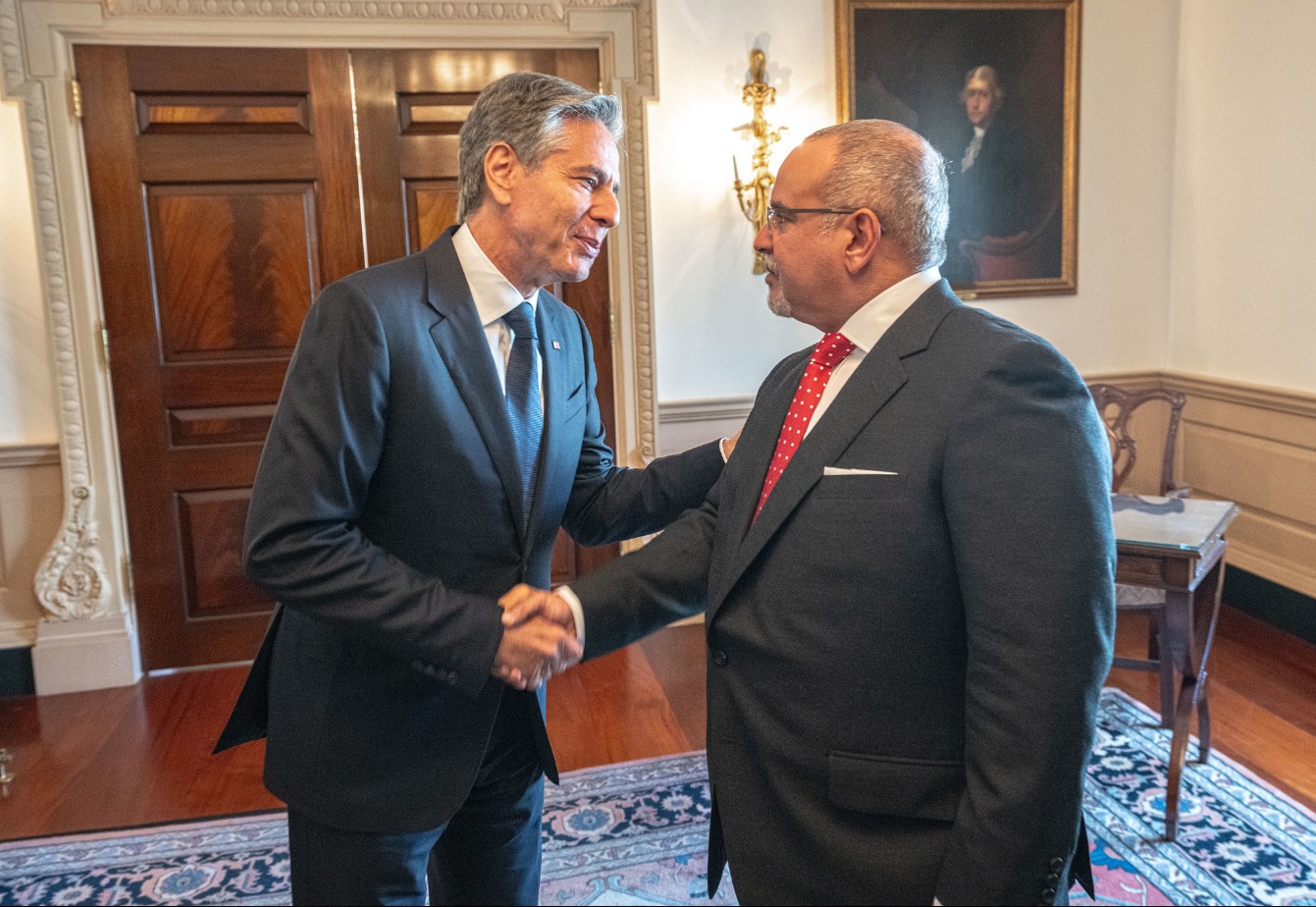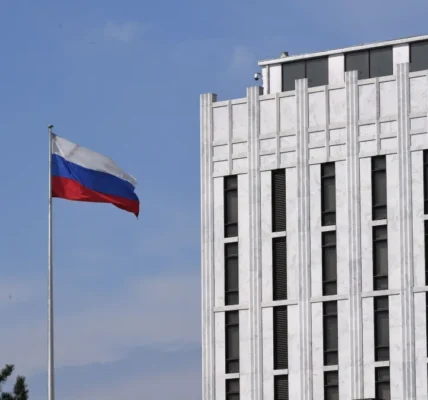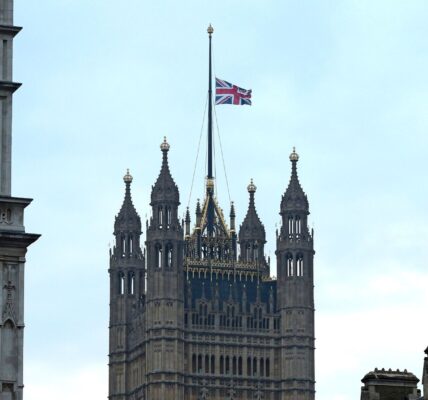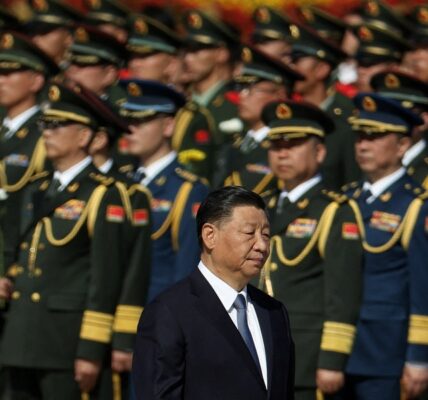US-Bahrain Seek To Build On Historic Pact to Help Peace Across the Middle East
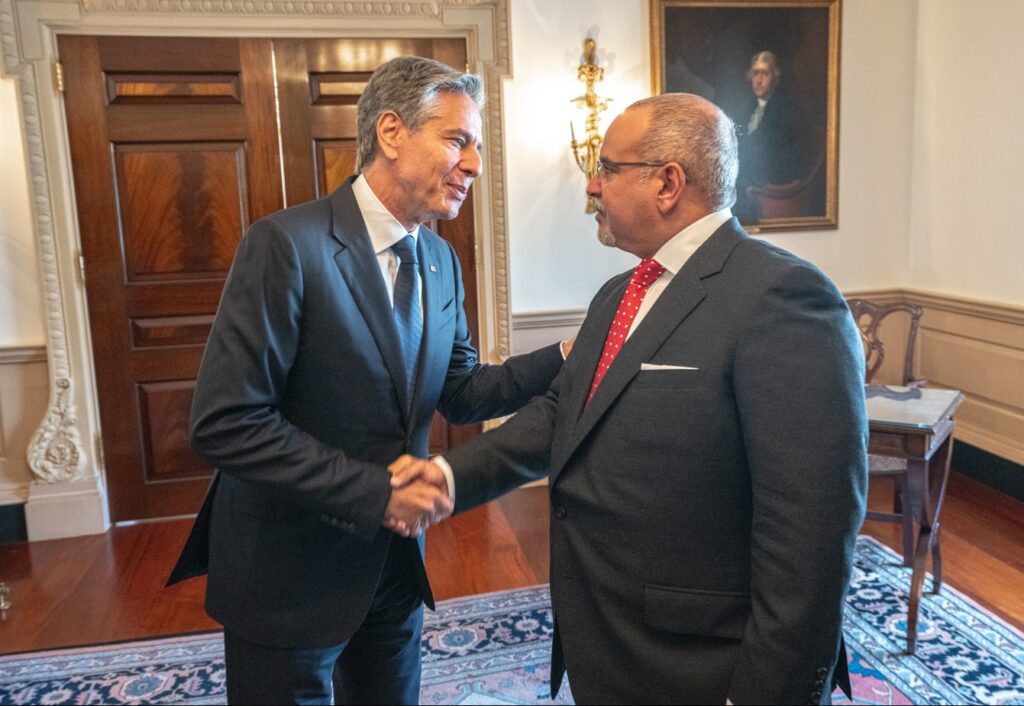
Antony Blinken and Prime Minister Salman bin Hamad Al Khalifa Credit: US State Department
Bahrain’s Prime Minister is expected to visit the Pentagon next week, putting the seal on a historic and far-reaching security and economic pact agreed between the two nations.
Secretary of State Antony Blinken and Prime Minister Salman bin Hamad Al Khalifa signed a Comprehensive Security Integration and Prosperity Agreement, which spans “defense and security to emerging technology, trade, and investment,” according to the State Department.
The new agreement “will strengthen coordination between our armed forces and the integration of our intelligence capacities, allowing us to even better deter and respond to threats as they arise,” Blinken said Wednesday from the Treaty Room in Foggy Bottom, Washington DC.
“For more than 25 years, of course, Bahrain has hosted the U.S. Navy’s Fifth Fleet, and we stand shoulder to shoulder in our mission to secure critical shipping lanes that sustain the entire global economy,” he added.
“The world today is faced by a number of choices,” Al-Khalifa said while seated beside Blinken. These included choosing “the rise of authoritarianism or the growth of libertarianism, and the international rules-based order that manifested itself in the early 19th century was the foundation for the freedom of trade, of the movement of ideas, of people all over the world, and we’re all beneficiaries of that,” he said.
“At the heart of the agreement is a shared goal: working together to build a region that is more secure, more prosperous, and that’s more connected to the world economy,” Blinken said to reporters just before the signing ceremony.
“We’re looking forward to using this agreement as a framework for additional countries that may wish to join us in strengthening regional stability, economic cooperation and technological innovation.”
It is hoped that the new accord will help settle a period of upheaval in the Gulf, with the Biden government also negotiating a U.S.-Saudi defence pact, which will include seeking to open up an agreement between Israel and Saudia Arabia about restoring peaceful links.
The obvious advantage to all sides is negating Iran’s influence in the region, with one U.S. official describing the US-Bahrain pact as “about deterrence and setting conditions for a more stable region going forward.”
Although it is legally binding, according to U.S. officials, it does not carry the Article V mutual defense pact that is part of the NATO treaty.
The agreement is seen as an opportunity to integrate the region’s air and missile defense systems and increase “maritime domain awareness,” according to a White House fact sheet.
U.S. officials are on record as saying they plan to bring up human rights concerns during the talks with the Bahrainis, the official said.
Hundreds of political prisoners in Bahrain suspended a hunger strike after the government promised to improve prison conditions, according to rights groups said.
The Bahrain Institute for Rights and Democracy said the prisoners agreed to suspend the strike, which started on Aug. 7, until Sept. 30 to allow implementation of the promised changes.
A Bahraini government spokesperson denied there were any political prisoners in the kingdom. “No one is detained for expressing his or her peaceful political views,” the spokesperson said in emailed comments.
“However, the authorities have a duty to investigate and if appropriate prosecute individuals – as in all countries – when conduct strays into violence or seeks to incite violence or hatred.”

